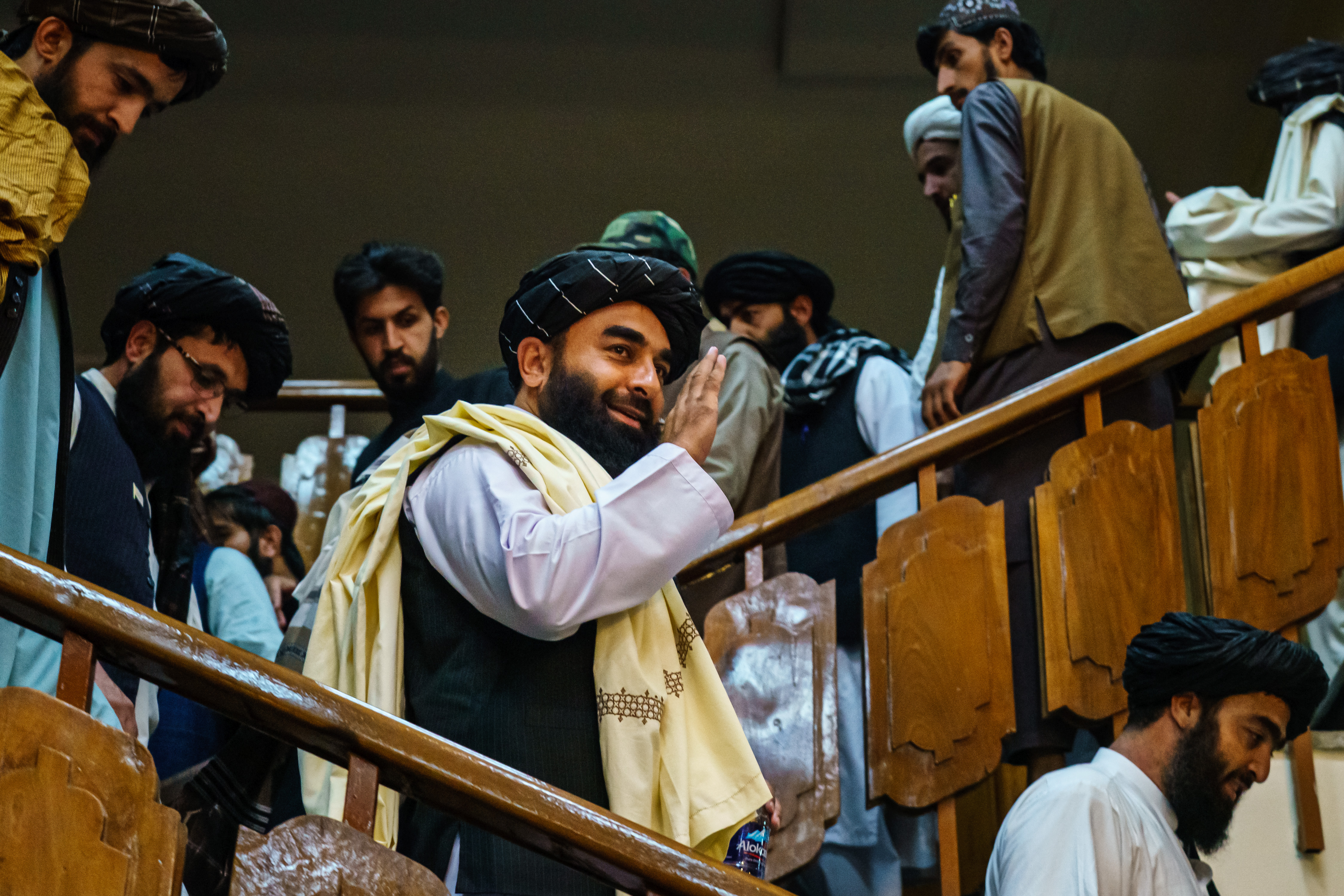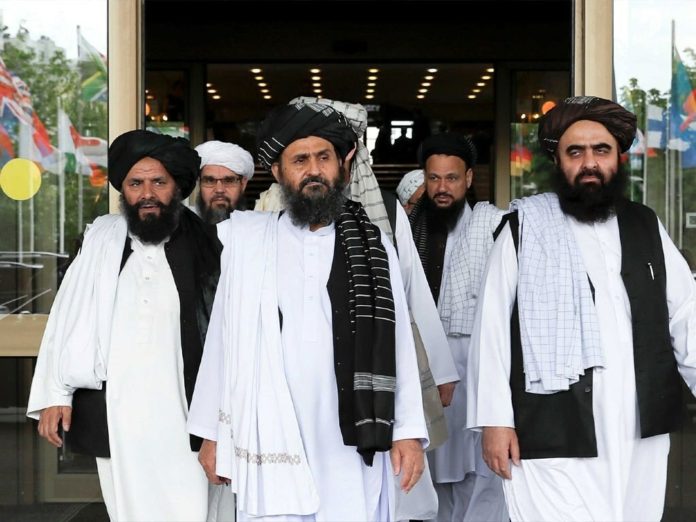The Taliban 2.0 regime has stayed put in power for more than a year. As they marked their one-year rule on August 15, 2022, it was a muted affair. The mood in the capital, Kabul, was dull and there was hardly anything to cheer for the militia leaders, who are longing for recognition to this day. But as they say, there is a flip side too. The yesteryears dreaded non-state actors, among whom many are still on the United Nations list of designated terrorists, governed the civil war-shattered country with utmost acumen, and there were no traces of indulging in discrimination in segregating people on sectarian and ethnic lines.
They came up with a deficit-free debut budget, and are making strides in social milieu. This is despite the fact that they have not been able to form an inclusive government. Nonetheless, the fact is that there has been limited sense of otherness on the governmental mosaic. The terrorist incidents that came their way largely were part of reactionary tactics from other militant outfits who are at odd with the Taliban well-entrenched now in the devastated Southwest Asian state.
The trajectory of this dispensation is an interesting tale of hope and despair.
The militia did all in its capacity to woo the international community. It surprisingly went soft with the Americans and made history by enabling them exit Afghanistan with not a single shot being fired. There were no incidents of abduction, holding foreigners for ransom or loot and plunder of foreign missions.
Quite strange to the mosaic of the strife-torn nation. The Hamid Karzai International Airport in Kabul, rather, was a manifest of a safe haven, and hordes of anti-Taliban nationals were seen boarding numerous aircraft that were there to funnel out dissidents and diplomats. Likewise, the Taliban were seen rubbing shoulders with Chinese and Russians, and were in a comfort zone with the Arab states.
Pakistan was at the beck and call of the Taliban, as Islamabad did all it could to ameliorate the lot of the food and security-scared nation. It organized an Extraordinary Foreign Ministers’ moot of the Organization of Islamic Conference in Islamabad, and raised millions of dollars for humanitarian assistance under the auspices of Saudi Arabia.
It is altogether another story that the denominator with Pakistan did not last for long, and there are evident fissures now in their relationship. Pakistan’s earnest desire to stem the militia movement across the porous 2,600- kilometer border and to reach an agreement with the outfits including the Tehrik-e-Taliban on both the flanks remains a bone of contention. This discord is once again plunging Pakistan into renewed upheavals, and the sudden advent of militants in Swat and unrest in the erstwhile tribal areas is the writing on the wall.
The biggest challenge and task for the Taliban is to gain recognition from the international community. It is apparently the only government in the world that has zero acknowledgment de jure. Whereas, on the other hand, each and every catalyst state in the region and beyond wants to deal with the militia for reasons of peace and security, as well as semblance in the region. But none are forthcoming in offering due acknowledgment to the regime in Kabul.
This comes as putting the cart before the horse, and the Taliban continue to trail in regression.
Another surprising aspect is that the way the Taliban have ruled and spent their 13 months in power without strings of legality has pushed Afghanistan into a quagmire of its own. The locals’ faith in the global community as well in international law obviously stands eroded. The impression is of an outlawed regime with which no one wants to deal. But the pivot of the region’s geostrategic and geo-economics revolves around it.
This aspect of dealing with Afghans as a pariah and rogue state has undermined its civil society’s synergies of emancipation, and pushed it into a corner. Now lectures of democracy, human rights and equality will surely fall on deaf ears in the war-devastated country sitting on rubbles, and will come as a setback to their participation in global affairs.
Let us briefly judge the criterion that the West and the neighbours demanded from Taliban for recognition.
They wanted Kabul to come up with an inclusive government, consisting of sections from all schools of thought and religious sects. This is an appreciated initiative. But the point is that it goes against the spirit of sovereignty of any government or the state, per se, if it is dictated to adopt a nomenclature that is contrary to its political will and manifesto.
This does not mean that the vote is on Taliban’s side, rather the argument is that there are many other states whose governance unit is inorganic and lawfully biased in essence, and such examples span from the Middle East to shores across the Mediterranean and the Atlantic Ocean! Many of them took ages in reforming their political edifice, and even to this day are devoid of genuine spirit of accommodation in their governance decorum.
Then, why merely Afghanistan, which is anyway a primitive society and one that the civilized major powers had bombed back to Stone Age with four decades of aggression and occupation. Give it a thought – after all the Americans and the Russians had parachuted their puppets in this war-torn state, and that too with impunity! It is a litmus question of conscience in the realms of history and political science.

Afghanistan today, nonetheless, is relatively peaceful. Though there is no dearth of people, especially the elite, who want to abandon it for greener pastures, there are millions more who want to make it a home to live in. This greater community is in need of international support, and this is what is missing and unintentionally plunging the region into a bigger threat of warfare.
Since August 2021, Afghans are desolate and loathing on all of their international borders merely because they are unable to find two square meals, and a place with civic parameters to live on. Then who is failing a nation of 40 million? Obviously, the prime share of responsibility is on the international community which is reading a mantra of ifs and buts, and do more, before piecemeal release of aid and assistance.
As per UNHCR estimates, by the end of 2021, 3.5 million people had been displaced within Afghanistan’s borders, and more than two million had fled the country. This is tantamount to breeding instability across the borders at the cost of pushing in quagmire a brave and resilient nation.
By freezing $9.6 billion of Afghan money in the US and European banks, the Americans have almost paralyzed the Afghan economy. This, nonetheless, seems to be a bargaining chip on the political and geostrategic planes.
While the Taliban are in power, their way of conducting international affairs keeps the country in a state of flux. The Taliban’s endeavours to be recognized have failed as none of the nations are ready to give legitimacy to a regime which is not prepared to conform to international norms and practices.
Now let us see what fait accompli it met with since the last one year.
For the Americans, withdrawal was a rational decision enabling them to cut in on human losses, and at the same time save billions of dollars that they were pouring into the dungeon of black hole called Afghanistan. Former US President Donald Trump had termed it a ‘wasteful war’, and President Joe Biden believes that withdrawal would save around $50 billion per annum.
But the apathy is that Washington sits on the frozen assets of the devastated state by holding back its reserves of around $9.5 billion. This is a paranoid and hateful move by any standards. Why should the State Department hold back the hard-earned money of Afghans when they now stand free of liabilities in the southwest Asian region?
This realpolitik has answers in Machiavellian doctrine as the US wants to bleed the Afghans and then come to terms with it by staging a comeback in this part of the world. The disgraced exit is toiling American world leadership conscience, and notwithstanding Biden’s resolve not to become part of any war off the Atlantic, is gradually sliding the United States back in a confrontational mode. Its quest to dominate the Middle East and South and West Asia, as well as the Straits of Taiwan, are no secret – and the fissures of insecurity breeding in these flashpoints are a case in point.
Two test cases will go on to describe the future narrative of Taliban.
One – will it come to terms with Pakistan and the greater region, especially China, by shunting out non-state actors from its territory?
To what extent will the Taliban be part of counter-terrorism efforts coordinated closely by the CIA in the region?
And last but not least, will it be successful in resorting to nationalism by shunning the hard-line religious emblem that it wears and embrace cohesiveness of society?
If it can be affirmative on these salient features, the Taliban have a future of serenity and ultimate legality.
Two – while the most-dreaded man who carried a bounty of $25 million on his head, Al Qaeda supremo Ayman Al-Zawahiri, was taken out by the Americans in Kabul on July 31, 2022, it sounds the pro-activeness of a deep state in Afghanistan.
The mission was accomplished either with a drone or a missile is yet a guessing riddle. In both the cases, the complicity of the Taliban is a must. The point that they did not protest further from a ceremonial condemnation has much to read between the lines. If the Taliban are on board, then it means the status quo for the Pentagon stands restored in Afghanistan.
In other words, the Doha Accord is bearing fruit. From a silent exit of the Americans from Kabul to the bang of Al-Zawahiri’s annihilation, the plot is thickening. Are the Taliban playing both sides?




